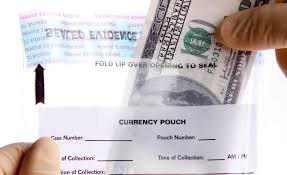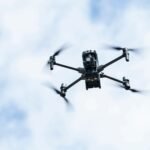
The Council of the Inspectors General, while making a renewed bid for more Congressional funding for the DOJ, highlighted numerous jaw-dropping examples of the rampant fraud that took place.
According to the previous federal government estimate from June 2023 cited in the latest report, more than $200 billion in fraud was committed due to Covid aid payments and related government programs.

However, the DOJ states that only $1.4 billion has been clawed back despite Congressional funding to investigate and litigate these crimes. It also notes that “more than 3,500 defendants” were charged with federal crimes and there were “more than 400 civil settlements and judgments.“
The DOJ used the report to highlight the alleged need for more funding, despite failure to help secure the Covid aid funds in the first place and return a significant amount of the ill-obtained payments to the American people.
“Working with law enforcement and the Inspector General community, the Department of Justice has deployed a data-driven prosecution strategy to combat COVID-19 fraud—to the tune of over 3,500 defendants charged and more than $1.4 billion seized or forfeited,” said Deputy Attorney General Lisa Monaco.
“But the time is now to ensure law enforcement has what it needs to finish the job,” Monaco added. “The statute of limitations must be extended and the necessary funding and data analytic tools secured for our prosecutors to recover hundreds of millions of dollars more in fraud proceeds, bring remaining offenders to justice, and disrupt criminal networks that continue to victimize our citizens.”
The Department of Justice listed examples that are the “tip of the iceberg” of the hundreds of billions of dollars stolen from the American government during the Covid pandemic.
-
- A Texas-based commercial roofing contractor and its nationwide network of roofing and disposal companies agreed to pay $9 million to resolve allegations that they violated the False Claims Act (FCA) by falsely certifying that eight of their affiliates were eligible to receive loans through the Small Business Administration’s (SBA) Paycheck Protection Program (PPP).
-
- A Georgia urgent care chain agreed to pay $1,600,000 to resolve allegations that they violated the False Claims Act (FCA) by submitting improperly upcoded Evaluation and Management claims to Medicare for the testing and treatment of patients with suspected exposure to COVID-19 during the Coronavirus pandemic.
- A California-based technology services company agreed to resolve allegations that it knowingly violated the False Claims Act when it applied for, received, and retained two Paycheck Protection Program (PPP) loans totaling $400,000 in violation of PPP rules, falsely certifying that it met company size restrictions for the loans, and that its revenue decreased in excess of 25% from 2019 to 2020, a program requirement, when its revenue increased.
- A Florida-based automotive management company agreed to pay more than $9 million to resolve allegations that it knowingly violated the FCA by providing false information relating to its corporate affiliations and size in support of a PPP loan forgiveness applicatio
- A New Jersey public relations firm paid $2.24 million to resolve allegations that it knowingly violated the FCA by falsely certifying its compliance with PPP requirements even though it was ineligible for the loan due to its status as a registrant under the Foreign Agent Registration Act.
- A Georgia-based clinical laboratory, along with its owner, agreed to pay more than $13 million to resolve allegations that it sought to profit off the COVID-19 pandemic by paying independent contractor sales representatives to recommend expensive and medically unnecessary respiratory pathogen panels to senior communities that were interested only in COVID-19 tests.
Director Michael C. Galdo of the COVID-19 Fraud Enforcement Task Force remarked that the Covid aid fraud was international in nature.
“While I am incredibly proud of the work of the CFETF and the significant law enforcement accomplishments, much work remains in the fight against COVID-19 fraud,” said Director Galdo. “The CFETF and its member agencies have ongoing investigations into hundreds of identity thieves, transnational fraud and money laundering networks, large-dollar individual fraudsters, and the businesses that facilitated these crimes. CFETF member agencies have improved their data analytics capabilities and are using these new skills to investigate fraud more efficiently and effectively.”
The DOJ provides important background on the CFETF.
“In May 2021, the Attorney General established the COVID-19 Fraud Enforcement Task Force to marshal the resources of the Justice Department in partnership with agencies across government to enhance efforts to combat and prevent pandemic-related fraud,” the government agency notes. “The task force bolsters efforts to investigate and prosecute the most culpable domestic and international criminal actors and assists agencies tasked with administering relief programs to prevent fraud by, among other methods, augmenting and incorporating existing coordination mechanisms, identifying resources and techniques to uncover fraudulent actors and their schemes, and sharing and harnessing information and insights gained from prior enforcement efforts.
The entire report can be read here.
The Associated Press reported earlier that fraudsters and swindlers may have stolen around $280 billion in COVID-19 emergency funding, with an additional $123 billion lost or misappropriated.
The majority of the possible losses come from two SBA programs, as well as another that provides unemployment payments to people who are suddenly jobless as a result of the pandemic’s economic disruption.
President Joe Biden inherited the three programs, which were established under the Trump administration. The combined loss assessed by AP is 10% of the $4.2 trillion in COVID aid granted by the US government.




